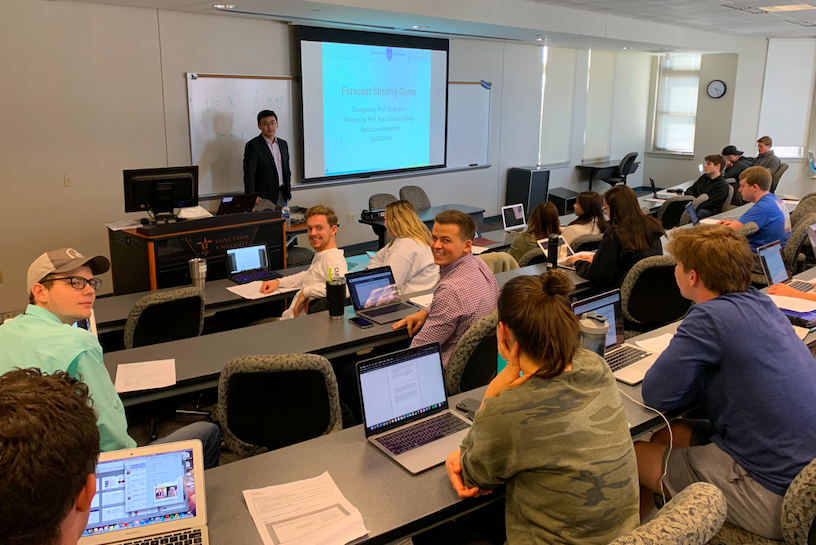How We Work:
Research, Validate, Develop, Deploy
Educators’ standards are high. We make sure to meet them.
Traditional teaching methods have their shortcomings. In recent years, the use of technology and mobile devices have become necessary to involve and engage students so that they can learn better.
Fathomd has a unique three-stage methodology as a solution: scientific game design and development, creation of a centralized error-proof design language, and the game publishing and distribution platform.
First, we build games designed on academic principles with a clear focus on business world application. The fundamental nature of these games augments the impact of learning in major academic areas so that students discover, learn and retain knowledge. We focus on few fundamental topics in each of our games and make these topics fathomable for our students who discover and learn by doing. Second, we provide a technology platform that serves as an ecosystem for our growing instructors and students community. Third, we provide a publishing mechanism through the platform to enable development of pedagogically validated games that satisfy our well-defined scientific principles of effective games.
Extensive Research:
200+ professors interviewed
4,000+ students played
Fathomd periodically interviews professors to validate the perceived benefits of our Game Research and Development (GR&D) process, the Game Design Language (GDL) and the web-based Game Distribution Platform (GDP).
85% of the professors interviewed so far, stated that a scientifically supported gamification method is necessary for new game development; professor authors who are subject-matter experts must provide the content, which must then be converted into a highly usable technology format. GR&D’s principal purpose is to create this combination of pedagogical, professor-developed content that is easily integrated into classrooms.
In addition, professors emphasized the benefit of Fathomd’s proposed capability to build new games quickly and effectively, which we accomplish via the GDL as the implementation toolset of GR&D. The structure of GDL also solves a typical technology challenge in class – failure resulting in lost class time. Our GDL guarantees, for example, the technical stability through the use of non-Turing-complete models of computation to mitigate runtime errors.
GDP renders games with a standardized user interface framework that addresses common usability issues in game administration, gameplay, and data analysis. As a result, we make the games available for wide consumption via a marketplace.
Business games work exceptionally well in both undergraduate and graduate level courses. Gamification of the course content generates a lot of fun and important discussions in the class, while professors engage students observing real-time performance related figures. As a result, students learn the fundamental topics by making decisions, observing their consequences and discussing the related content the professor curates.
Students experience the effects of uncertainties, roles, objectives, incentives and their decisions and actions as well as those of other players in a realistic business environment during the gameplay. Games involve them in real life situations and understand the fundamental concepts we teach in class better.
The broader impact is to facilitate retention and effective use of fundamental management concepts taught in classrooms to manage organizations. Gamification provides an environment for enhanced competition, accountability, discovery and instant feedback, which improve overall learning outcomes above traditional lecture-based methods. The games are positioned to supplement current teaching methods across academic fields and benefit both knowledge seekers and knowledge providers. As a result, organizations will also benefit through hiring better-trained students who retain knowledge learned at business schools and who can put their acquired skills into use.
Our passion for learning guides us!
We believe our proposed approach will drive large-scale adoption of gaming in higher education for two key reasons. First, we develop and design games as a result of a rigorous research process that we carry out together with innovative professors across the world. Together, we determine core fundamental management concepts, methods and frameworks that organizations need. Second, we test and validate the power of action-based learning with our games before we distribute them widely.
We keep on expanding upon this approach in these games by building and following a scientific approach. We commit to design effective games encompassing fundamental management concepts, while learning, researching, discovering, and documenting pedagogical principles required to make such games effective learning tools.





